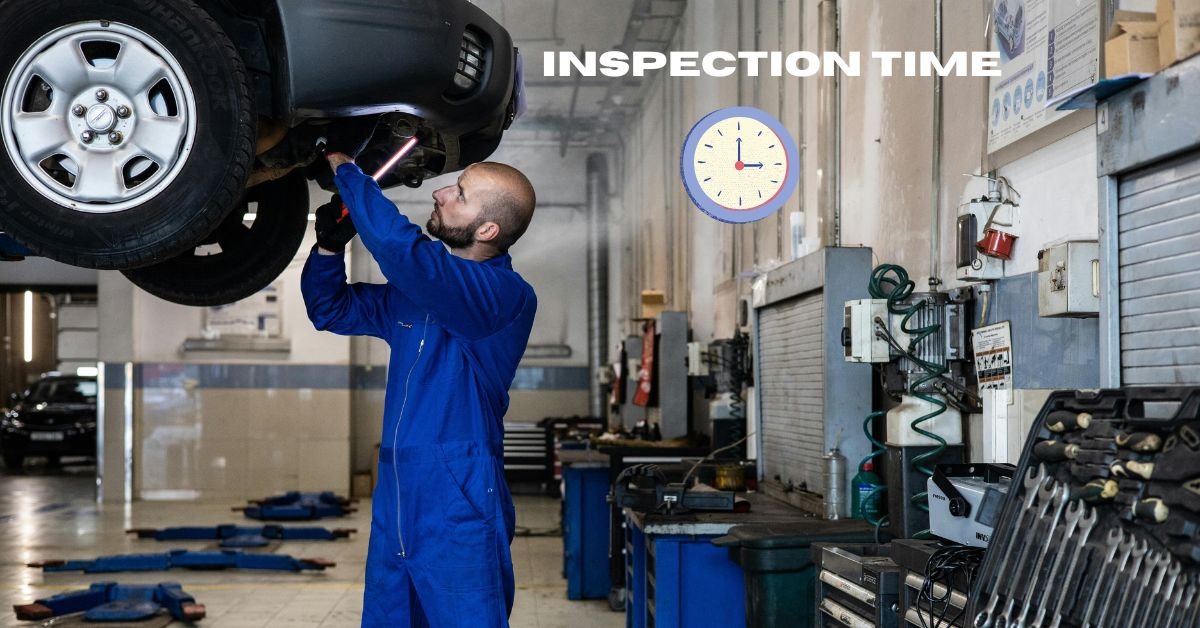When it comes to buying or maintaining a car, one of the most important steps is getting the vehicle inspected. Whether you’re buying a used car, preparing your vehicle for a routine maintenance check, or even getting it ready for a road trip, an inspect a car is essential to ensure your car’s safety and performance. But the question remains: how long does it actually take to inspect a car?
The answer isn’t as straightforward as one might think, as the time required for a car inspection can vary depending on several factors, such as the type of inspection, the condition of the vehicle, and the complexity of the issues being checked. However, there are general guidelines and estimates to help you understand what to expect when it comes to car inspections.
How Long Does It Take to Inspect a Car?
1. Types of Car Inspections
Before diving into the time aspect, it’s important to note that car inspections can be categorized into different types:
- Pre-Purchase Inspections: When buying a used car, it’s essential to get a comprehensive inspection to ensure you’re not buying a vehicle with hidden issues.
- Routine Maintenance Inspections: These are regular check-ups that most car owners perform to keep their vehicle in good working order.
- State-Mandated Inspections: Some regions require a mandatory inspection to ensure that cars meet safety and emissions standards before they’re allowed on the road.
- Specialized Inspections: These are often needed when there’s suspicion of specific issues such as brake problems, engine issues, or accidents. It could also apply to cars that have been modified or need additional safety checks.
2. How Long Does Each Type Take?
1. Pre-Purchase Inspection: If you’re considering buying a used car, having an inspection done is an absolute must. A pre-purchase inspect a car usually takes between 1 to 2 hours. During this inspection, a mechanic will assess the car’s overall condition, including the engine, transmission, suspension, brakes, electrical system, and exhaust. If any issues are found, the mechanic might need additional time to assess the severity of the problem.
2. Routine Maintenance Inspection: Routine inspections vary based on what’s being checked. A standard oil change and basic maintenance inspection might take as little as 30 minutes to 1 hour. However, more extensive inspections that check fluid levels, tire conditions, battery health, brakes, and other key components might take around 1 to 2 hours. The overall duration depends on how thorough the mechanic is and whether any problems are identified that require attention.
3. State-Mandated Inspections: These inspections are typically brief and take around 30 minutes to 1 hour. State inspections mainly focus on the safety of the vehicle (like lights, brakes, and tires) and emissions testing. While they don’t go as in-depth as other types of inspections, it’s still a crucial part of maintaining your vehicle’s roadworthiness.
4. Specialized Inspections: When you’re dealing with a more specialized inspection, like an issue with the transmission or brakes, the time needed can vary. These inspect a car often take longer due to the need for more in-depth diagnostics. Expect these inspections to take anywhere from 1 hour to several hours, depending on the complexity of the issue. For example, if the mechanic needs to remove parts of the engine or transmission to inspect them, it could take a significant amount of time.
Must Read: What Is A Good Mileage On Used Car?

3. Factors Affecting Inspection Time
Several factors can influence the time it takes to inspect a car, including:
- Car’s Condition: Older cars or vehicles with more complex mechanical issues tend to require longer inspections. A newer car with no visible issues will likely take less time to inspect.
- Inspection Type: As mentioned, the scope of the inspection determines how long it will take. Routine checks will be quicker than specialized or pre-purchase inspections.
- Availability of Mechanic: If the mechanic is busy or there’s a backlog, your inspect a car could take longer. In some cases, you might need to schedule an appointment and wait for your turn.
- Diagnostic Equipment: In modern cars, diagnostic machines can speed up the process of identifying issues with the vehicle’s electrical systems or engine. However, not all inspection services have the latest equipment, which could extend the inspection time.
4. Can You Speed Up the Process?
While it’s crucial to ensure a thorough inspection, there are a few things you can do to help speed up the process:
- Schedule an Appointment in Advance: If you know when you’ll need your car inspected, book an appointment ahead of time to avoid unnecessary delays.
- Prepare Your Vehicle: Make sure your vehicle is accessible, the hood is open, and all necessary paperwork is ready (if applicable). This will save time for the mechanic, especially during a pre-purchase inspection.
- Choose a Trusted Mechanic: An experienced and efficient mechanic can complete a thorough inspection faster than someone who is less familiar with your make and model of car.
Conclusion
The time required to inspect a car depends on the type of inspection, the car’s condition, and the specific needs of the vehicle. Generally, a basic inspection takes around 30 minutes to 1 hour, while more comprehensive or specialized inspections may take longer, ranging from 1 hour to several hours. Whether you’re buying a used car, maintaining your current one, or complying with state regulations, it’s important to allow enough time for a detailed inspection to ensure your car is safe and running smoothly.
If you’re in the process of purchasing a used car or just need a routine check-up, remember that investing time in a proper inspection can save you from costly repairs down the road and provide peace of mind that your vehicle is in good working order.
